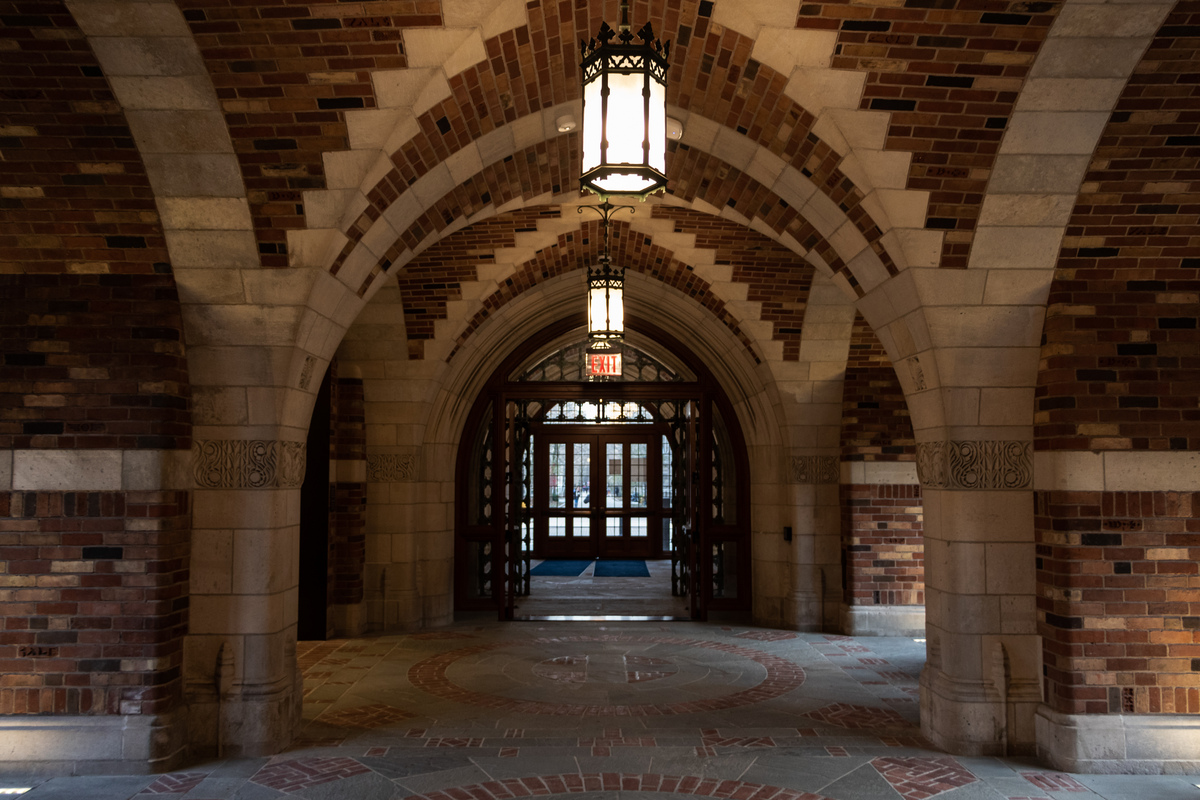Political activist Jenny Brown talks reproductive justice and socialist feminism
As part of their speaker series, Yale Young Democratic Socialists of America hosted author and political activist Jenny Brown to discuss the issue of abortion and reproductive justice as a labor issue.

Zoe Berg, Senior Photographer
Author, political activist and former editor of Labor Notes Jenny Brown spoke to Yale students about her work on reproductive justice and abortion rights within the world of socialist feminism.
Held on Nov. 13, the event was organized by the Yale Young Democratic Socialists of America, the youth and student wing of the Democratic Socialists of America — the largest socialist organization in the country. Part of YDSA’s mission is to organize for the power of the multiracial working class through labor struggles and social justice issues. They invited Brown, a prominent figure in the fight for reproductive justice, as part of their speaker series to provide a framing of abortion as a labor issue.
“I think she’s one of the first people to bring to light this class analysis of the struggle for abortion rights,” Yale YDSA co-chair Caitlyn Clark ’23 wrote in an email to the News.
One of the central points Brown raised is the misconception that the debate over liberal and conservative views of abortion rests in religious differences. She argued that this is not the case — the case against abortion is in fact the case against all forms of contraceptives.
If the debate were just about reducing abortions, conservatives would be for contraception because it would decrease the likelihood that someone would need an abortion, according to Brown. Instead, she remarked, the exact opposite is happening: restrictions are being placed on both abortion and contraceptives like Plan-B and hormonal birth control.
“We will be stronger when we recognize that the battle is not over religion, but over our reproductive labor and how cheaply that work will be done,” Brown said.
As she asserted, social reproductive labor is the work that people, typically women, complete to raise the next generation of people and workers. However, with the rising cost of raising a family, the United States birth rate has decreased to the point below replacement—1.6 to 2.1, respectively.
She elaborated that instead of reducing the costs to have children, as many other countries have done to increase the birth rate, the U.S. determined it would be cheaper to attack abortion rights and essentially force people to raise the birth rate.
“We never won the right to abortion in the U.S., we won the right to raise the money to pay for one,” Brown said.
A throughline during the talk was the idea that because abortion rights is a labor issue, people have the power to withhold social reproductive labor.
Clark echoed Brown’s sentiment, arguing that people’s ability to access abortions is a form of striking against “a capitalist class that has refused to cover our basic needs in order to continue having children,” such as through limited parental leave and a lack of universal healthcare.
Other attendees said they found Brown’s speech to be compelling and evidence-based.
“She linked the advent of intense restrictions on contraception, abortion, and information about family planning in the 1873 Comstock Act to racist narratives coming from politicians about how white Protestant women weren’t having enough children, which fed into fears about stagnating population growth,” Adora Svitak ’22, a second year PhD student, wrote in an email to the News.
Yale YDSA’s decision to host Jenny Brown was in part influenced by their own ongoing fight to provide better reproductive and gender-affirming healthcare from the Yale Health Basic plan, alongside coalition organizations across Yale College and the professional schools.
This includes advocating for Yale Health to provide medication abortion pills for all students, co-pays for all forms of birth control and co-pays for abortion procedures for students on Yale Basic all at no cost.
According to Clark, students who are interested in getting involved can attend the Yale YDSA’s weekly meetings in HQ133 every Tuesday at 7 p.m., in addition to signing their petition.
“Brown’s work is quite relevant to my interest in gender inequality, particularly as I’m currently researching inequalities in heterosexual intimate life,” Svitak said. “It’s impossible to study the way that people of different gender identities relate to each other without thinking about whether they have equal freedom to determine their reproductive outcomes.”
The estimated cost of raising a child is $17,000 per year in the United States.







